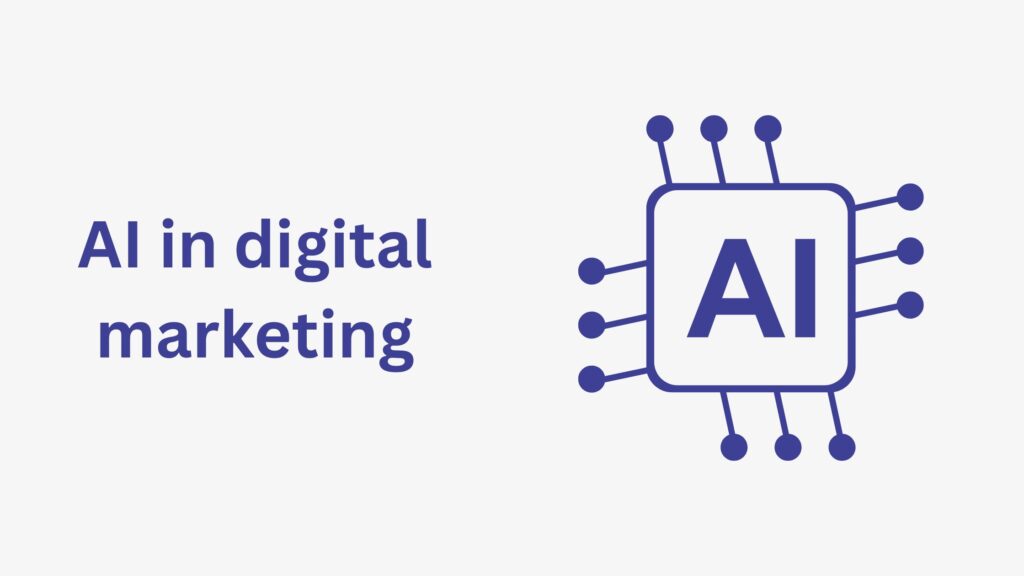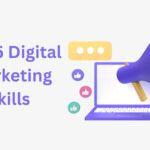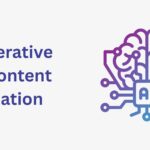In today’s fast-paced digital world, artificial intelligence (AI) revolutionizes how businesses connect with customers. As a beginner stepping into digital marketing, you might wonder how AI fits into the mix. AI in digital marketing refers to smart technologies that analyze data, automate tasks, and personalize experiences to boost campaigns. Marketers harness AI to create targeted ads, generate content, and predict trends, making strategies more efficient and effective.
This comprehensive guide breaks down everything you need to know. You’ll discover top AI tools, real-world examples, practical steps to get started, the upsides and downsides, essential skills, and exciting future trends. Whether you’re a newbie marketer or just curious, this listicle-style article equips you with actionable insights. By the end, you’ll feel confident integrating AI into your workflow. Let’s dive in!
What is AI in Digital Marketing?
AI transforms digital marketing by mimicking human intelligence through machines. It processes vast amounts of data at lightning speed, uncovers patterns humans might miss, and executes actions automatically. For beginners, think of AI as your smart assistant that handles the heavy lifting, from crafting emails to optimizing ad spend.
At its core, AI in digital marketing powers three key areas: automation, personalization, and analytics. Automation streamlines repetitive tasks like scheduling posts. Personalization tailors messages to individual users, increasing engagement. Analytics dives deep into customer behavior to refine strategies.
Consider this: In 2025, 78% of organizations use AI for business purposes, up from 55% the previous year. Brands like Shopify and Airbnb leverage AI to personalize recommendations, driving sales. For you as a beginner, starting with free tools like ChatGPT helps grasp these concepts without overwhelming tech jargon.
AI isn’t magic—it’s built on machine learning (ML) and natural language processing (NLP). ML algorithms learn from data to improve over time, while NLP enables chatbots to understand queries. Together, they make marketing more data-driven and customer-centric. As Gartner predicts, 79% of consumers will use AI-enhanced search by next year. Embracing AI now positions you ahead of the curve.
Top 10 AI Digital Marketing Tools for 2025
Beginners often feel lost choosing tools, but these 10 AI-powered options stand out for their ease of use and impact. Each tool simplifies a specific marketing task, from content creation to analytics. Start with free trials to experiment.
- Jasper AI: This tool generates compelling copy for blogs, ads, and emails. You input a prompt like “Write a beginner’s guide to SEO,” and it delivers polished drafts. Ideal for solopreneurs scaling content. Learn more at Jasper.ai.
- Surfer SEO: Optimize your content for search engines effortlessly. It analyzes top-ranking pages and suggests keywords, headings, and structure. Beginners love its intuitive dashboard for quick wins in SEO. Check out Surfer SEO.
- Gumloop: Automate workflows like lead nurturing or social posting. Connect apps via no-code interfaces, saving hours weekly. Perfect for beginners building custom automations without coding. Explore Gumloop.
- Notion AI: Boost productivity by summarizing notes or brainstorming ideas within your workspace. It integrates seamlessly with project management, helping beginners organize campaigns. Try Notion AI.
- HubSpot AI: Free CRM with built-in AI for email personalization and lead scoring. It predicts customer behavior, guiding beginners toward high-value prospects. Visit HubSpot.
- Canva AI (Magic Studio): Design stunning visuals with text-to-image generation. Beginners create social graphics or infographics in minutes, no design skills required. Get started on Canva.
- GWI Spark: Uncover consumer insights from real data. It generates reports on trends, helping beginners craft data-backed strategies. Discover GWI.
- Adobe Photoshop AI: Edit photos with generative fill for marketing assets. Remove backgrounds or add elements instantly, empowering beginners in visual storytelling. See Adobe’s tools.
- Smartly.io: Optimize ad campaigns across platforms. AI adjusts bids in real-time, maximizing ROI for beginners testing paid ads. Learn about Smartly.
- ChatGPT: The versatile starter tool for ideation, scripting, and research. Beginners use it daily to refine prompts for marketing magic. Access ChatGPT.
These tools democratize AI, letting beginners achieve pro-level results. Integrate one or two into your routine to see immediate gains.
7 Real-World Examples of AI in Digital Marketing
Seeing AI in action inspires beginners to experiment. Here are seven standout examples from 2025 campaigns, showcasing diverse applications.
- Personalized Email Campaigns by Instacart: AI analyzes shopping history to send tailored grocery suggestions. This boosts open rates by 30%, proving personalization’s power.
- Chatbots on Airbnb’s Site: Powered by NLP, these bots handle bookings and queries 24/7. They resolve 70% of issues instantly, enhancing user experience.
- SEO Optimization with Surfer SEO for Shopify: E-commerce giant uses AI to rewrite product descriptions, climbing search rankings and driving traffic.
- Ad Targeting by Coca-Cola: AI segments audiences via social data, delivering hyper-relevant video ads. Campaigns see 25% higher engagement.
- Content Creation for Netflix Recommendations: ML algorithms suggest shows based on viewing patterns, keeping subscribers hooked and reducing churn.
- Social Media Automation by Nike: AI schedules posts and analyzes sentiment, adjusting content to trends in real-time for viral reach.
- Predictive Analytics in Amazon’s Cart: AI forecasts purchases, suggesting add-ons that increase average order value by 35%.
These examples highlight AI’s versatility. As a beginner, replicate them on a small scale—start with a chatbot for your site.
How to Use AI in Digital Marketing: A Step-by-Step Guide for Beginners
Ready to apply AI? Follow this seven-step guide to integrate it smoothly into your strategies. Each step builds on the last, keeping things simple.
- Define Your Goals: Identify pain points, like low engagement. Ask: “How can AI help?” Set measurable targets, such as 20% more leads.
- Gather Quality Data: Collect customer info from emails or social. Use tools like Google Analytics to feed AI accurate insights.
- Choose Beginner-Friendly Tools: Pick one from our top 10 list, like Jasper for content. Sign up and explore tutorials.
- Start with Content Creation: Prompt AI: “Generate a social post about eco-friendly products.” Edit for your voice, then post.
- Personalize Customer Interactions: Use HubSpot AI to segment lists and send customized emails. Track opens to refine.
- Analyze and Optimize: Review AI-generated reports on performance. Adjust campaigns based on data, like tweaking ad copy.
- Scale and Iterate: Once comfortable, automate more tasks. Monitor ethics, ensuring transparency with users.
This process takes practice, but beginners see results in weeks. Remember, AI augments your creativity—don’t let it replace it.
Pros and Cons of AI in Digital Marketing
AI offers game-changing benefits but isn’t flawless. Weigh these pros and cons to make informed decisions.
5 Key Pros
- Efficiency Boost: AI automates tasks like A/B testing, freeing you for strategy. Marketers save 10-20 hours weekly.
- Hyper-Personalization: Tailor experiences to individuals, lifting conversion rates by 15-20%.
- Data-Driven Insights: Uncover trends from big data, improving ROI on campaigns.
- Scalability: Handle volume without extra staff, ideal for growing businesses.
- Real-Time Optimization: Adjust ads instantly based on performance, maximizing budgets.
5 Key Cons
- Data Bias: AI reflects flawed input data, potentially skewing targeting.
- High Initial Costs: Tools and training add up, challenging small budgets.
- Privacy Concerns: Handling data raises compliance issues like GDPR.
- Job Displacement Fears: Automation may shift roles, requiring upskilling.
- Lack of Creativity: AI excels at patterns but struggles with nuanced human touch.
Balance these by starting small and prioritizing ethics.
8 Most Common Skills Used in AI-Driven Digital Marketing
To thrive, beginners must blend marketing savvy with tech know-how. Here are eight essential skills, with tips to build them.
- Prompt Engineering: Craft precise inputs for AI tools. Practice by refining ChatGPT queries for better outputs.
- Data Literacy: Interpret analytics dashboards. Use free courses on Coursera to master basics.
- SEO Fundamentals: Optimize with AI insights. Tools like Surfer teach on-the-job.
- Content Creation: Edit AI-generated material for brand voice. Experiment with Jasper daily.
- Marketing Automation: Set up workflows in HubSpot. Start with simple email sequences.
- AI Tool Proficiency: Familiarize with LLMs and NLP. Codecademy offers quick tutorials.
- Analytical Thinking: Draw insights from data. Practice A/B testing on Google Ads.
- Ethical Awareness: Navigate bias and privacy. Read Google’s AI principles for guidance.
Hone these through hands-on projects. In 2025, marketers with AI skills earn 20% more.
The Future of AI in Marketing: 5 Key Trends for 2025 and Beyond
AI evolves rapidly, shaping marketing’s horizon. Watch these five trends to stay ahead.
- Hyper-Personalization at Scale: AI delivers one-to-one experiences across channels, with 70% of consumers expecting it.
- Generative AI for Creatives: Tools like Google Veo create videos from prompts, revolutionizing content.
- Predictive Analytics Boom: Forecast trends with 90% accuracy, optimizing budgets proactively.
- Ethical AI Integration: Regulations push transparent, bias-free tools. Brands prioritizing this build trust.
- Voice and Visual Search: AI enhances multimodal queries, with 50% of searches voice-based by 2026.
The AI marketing market hits $47.32 billion in 2025, growing 36.6% annually. Beginners who adapt now lead tomorrow.
Wrapping Up: Embrace AI to Elevate Your Digital Marketing Game
AI in digital marketing empowers beginners like you to compete with giants. From tools like Jasper to trends like hyper-personalization, the opportunities abound. Start small—pick one tool, learn one skill—and watch your campaigns soar. Remember, AI amplifies human creativity, not replaces it. Dive in, experiment, and track results. Your future as an AI-savvy marketer starts today.


